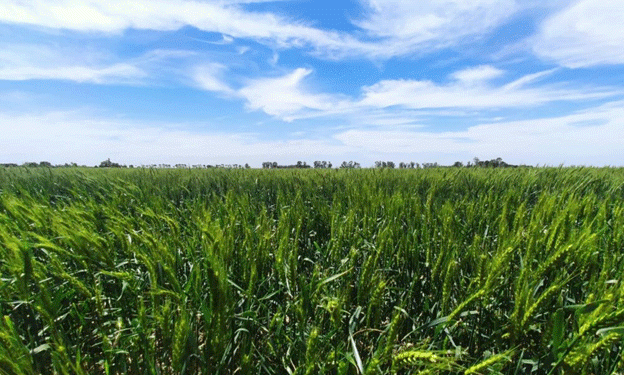HB4 Wheat Gains Ground in the United States with Patent Protection
Bioceres Crop Solutions Corp., a leading agribusiness firm based in Argentina, has announced that the United States Patent and Trademark Office has granted a Notice of Allowance for its first event-specific patent for HB4 wheat. This patent protects Bioceres’ drought-tolerant wheat technology and associated production system until 2042. The company is pursuing three additional patents in the U.S. to further safeguard its innovations in genetically modified wheat.
Why HB4 Wheat Matters
HB4 wheat was approved for cultivation by the U.S. Department of Agriculture (USDA) in August 2024, two years after it was cleared for food and feed use by the U.S. Food and Drug Administration (FDA). The United States, the world’s fourth-largest wheat producer, harvested nearly 40 million acres of wheat in the most recent marketing year. With the increasing impact of climate change on global wheat yields, HB4 wheat presents a crucial solution for maintaining productivity under water-scarce conditions.
According to Bioceres, HB4 wheat offers several key benefits:
- Drought Resistance: Yields increase by an average of 20% in water-limited conditions, making it a viable option for regions facing water scarcity.
- Weed Management: Enhanced tolerance to weed control strategies improves efficiency in farm operations.
- Sustainability Gains: When incorporated into no-till farming and double-cropping systems with HB4 soybeans, this variety contributes to soil carbon sequestration—fixing approximately 1,650 kilograms of carbon per hectare per year, a significant advantage over conventional soybean monoculture.
Global Adoption and Industry Response
The U.S. is now the fourth country to approve HB4 wheat production, following Argentina, Brazil, and Paraguay. Additionally, the technology has received approval for food and feed use in Australia, New Zealand, South Africa, Nigeria, Thailand, Indonesia, Colombia, and Chile.
While HB4 wheat is being positioned as a sustainable solution for climate-resilient farming, its introduction into U.S. agriculture has sparked mixed reactions. The U.S. Wheat Associates (USW) and the National Association of Wheat Growers (NAWG) have acknowledged the potential benefits of HB4 wheat while emphasizing the importance of consumer choice.
Michael Peters, former chairman of USW, reiterated the industry’s stance, stating:
“A drought-tolerant trait offers more stable and sustainable production. At the same time, it is important that customers who may be concerned about introducing transgenic wheat into U.S. supplies understand the industry supports their ability to purchase the type of wheat they want.”
Bioceres has committed to a responsible commercialization process, following industry principles that ensure transparency, regulatory compliance, and customer confidence. These measures include:
- Securing regulatory approvals in major wheat-exporting markets.
- Establishing low-level presence thresholds for non-GMO wheat supplies.
- Providing trait detection tests.
- Implementing a certified seed value capture model.
The patent protection for HB4 wheat in the U.S. marks a significant step toward widespread adoption of drought-resistant wheat varieties. With climate challenges intensifying, innovations like HB4 wheat could provide more stable yields, improved sustainability, and better adaptation to water-limited conditions. However, continued dialogue with consumers, exporters, and policymakers will be essential to ensuring a balanced approach to biotech crop integration.
Error





